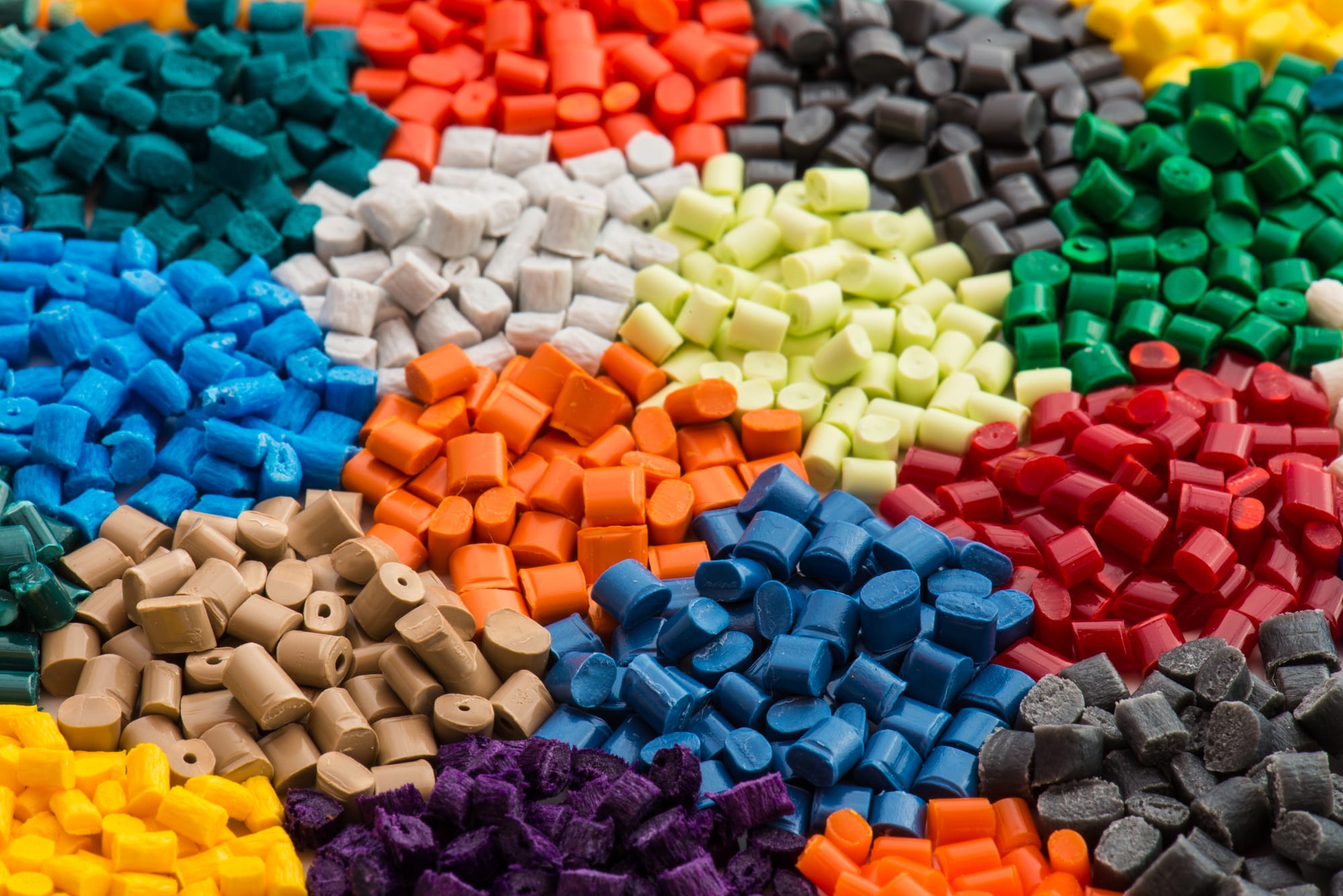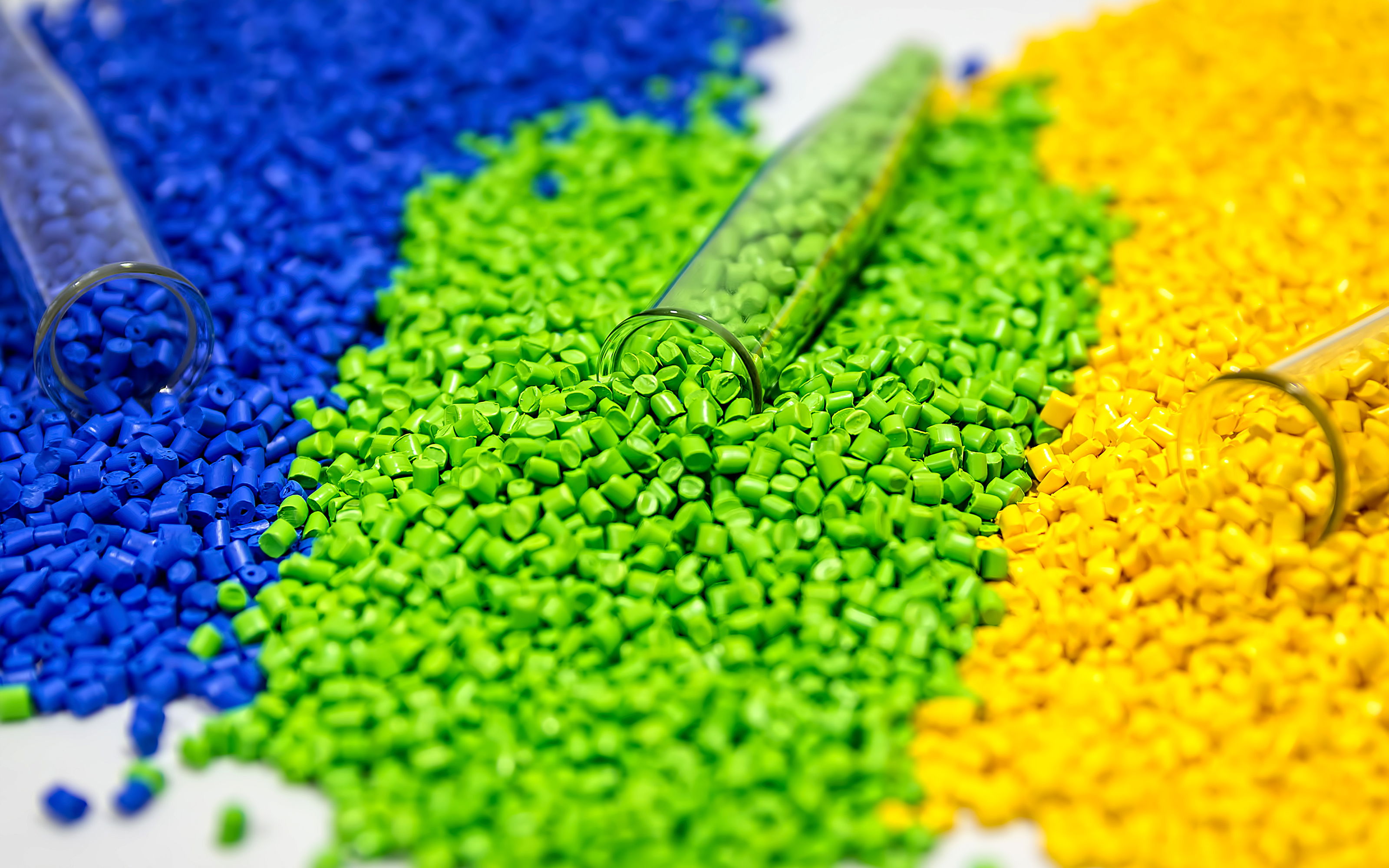Common Thermoplastic Properties and Applications

What is Thermoplastics?
Thermoplastics are a category of plastics that become moldable upon heating and solidify upon cooling. This reversible process allows them to be remolded and recycled multiple times. Common thermoplastics include ABS, PP, PE, PC, and PA, each offering unique properties such as high impact resistance, chemical resistance, flexibility, and durability. These materials are widely used in various industries, including automotive, consumer electronics, packaging, and medical devices, due to their versatility and ease of processing.

Types of Thermoplastic
Here are some performance parameters of common thermoplastics which might be helpful to you. If you need more information about injection molding, please feel free to Contact Us. Ideal Pro are more than happy to provide advice on part design and production.
ABS (Acrylonitrile Butadiene Styrene)
- Mechanical Strength: High impact resistance, toughness, and rigidity.
- Weather Resistance: Moderate, UV-stabilized grades available.
- Chemical Resistance: Good resistance to acids and alkalis, less to organic solvents. Applications: Automotive parts, electronic housings, consumer goods.
- Processing: 200°C - 250°C processing temperature
ASA (Acrylonitrile Styrene Acrylate)
- Mechanical Strength: High impact resistance and rigidity.
- Weather Resistance: Excellent, UV-resistant.
- Chemical Resistance: Good resistance to acids and bases.
- Applications: Automotive exterior parts, outdoor building materials, electronics housings.
- Processing: 220°C - 280°C processing temperature, 50°C - 90°C mold temperature.
HDPE (High-Density Polyethylene)
- Mechanical Strength: High strength and rigidity.
- Weather Resistance: Good.
- Chemical Resistance: Excellent.
- Applications: Pipes, bottles, containers.
- Processing: 180°C - 240°C processing temperature.
LDPE (Low-Density Polyethylene)
- Mechanical Strength: Good flexibility and impact resistance.
- Weather Resistance: Fair.
- Chemical Resistance: Good.
- Applications: Plastic bags, films, containers.
- Processing: 160°C - 220°C processing temperature.
PC (Polycarbonate)
- Mechanical Strength: High impact strength, transparency.
- Weather Resistance: Moderate.
- Chemical Resistance: Good.
- Applications: Safety helmets, optical discs, automotive lighting.
- Processing: 270°C - 320°C processing temperature.
PE (Polyethylene)
- Mechanical Strength: Varies by density (LDPE, HDPE).
- Weather Resistance: Good.
- Chemical Resistance: Excellent.
- Applications: Bottles, pipes, toys.
- Processing: 180°C - 260°C processing temperature.
PS (Polystyrene)
- Mechanical Strength: High rigidity, brittle.
- Weather Resistance: Poor.
- Chemical Resistance: Fair.
- Applications: Disposable cutlery, packaging, labware.
- Processing: 180°C - 240°C processing temperature.
PP (Polypropylene)
- Mechanical Strength: Good fatigue resistance, moderate impact strength.
- Weather Resistance: Excellent.
- Chemical Resistance: Excellent.
- Applications: Food containers, automotive parts, medical devices.
- Processing: 220°C - 260°C processing temperature.
POM (Polyoxymethylene, Acetal)
- Mechanical Strength: High rigidity and low friction, ideal for precision parts.
- Weather Resistance: Moderate; performs well in typical conditions.
- Chemical Resistance: Good resistance to many chemicals, suitable for industrial use.
- Applications: Commonly used in gears, bearings, and valve components.
- Processing: Typically processed at 190°C to 230°C.
NYLON (Polyamide, PA)
- Mechanical Strength: High, providing excellent durability and wear resistance.
- Weather Resistance:Moderate, good in normal conditions.
- Chemical Resistance: Good, resistant to many chemicals and solvents.
- Applications: utomotive parts, textiles, mechanical components.
- Processing: Processed at temperatures ranging from 240°C to 300°C.
PET (Polyethylene Terephthalate)
- Mechanical Strength: High, offering excellent structural integrity.
- Weather Resistance: Good, with stable performance under various weather conditions.
- Chemical Resistance: Excellent, resistant to many acids and solvents.
- Applications: Used in beverage bottles, food containers, and automotive parts.
- Processing: Typically processed at temperatures between 240°C and 280°C.
PMMA (Polymethyl Methacrylate, Acrylic)
- Mechanical Strength: Moderate, providing good durability and clarity.
- Weather Resistance: Excellent, highly resistant to UV and weathering.
- Chemical Resistance: Moderate, resistant to some chemicals but vulnerable to others.
- Applications: Commonly used in lenses, displays, and light fixtures.
- Processing: Processed at temperatures between 200°C and 250°C.
PPA (Polyphthalamide)
- Mechanical Strength: High, providing excellent durability.
- Weather Resistance: Good, stable under various weather conditions.
- Chemical Resistance: Excellent, resistant to a wide range of chemicals.
- Applications: Used in automotive components, electronics, and industrial machinery.
- Processing: Processed at temperatures between 290°C
TPE (Thermoplastic Elastomer)
- Mechanical Strength: Moderate, providing flexibility and resilience.
- Weather Resistance: Good, suitable for varied environmental conditions.
- Chemical Resistance: Moderate, resistant to some chemicals.
- Applications: Used in soft-touch grips, seals, and flexible connectors.
- Processing: 180°C - 240°C.
HIPS (High Impact Polystyrene)
- Mechanical Strength: Moderate, offering good impact resistance.
- Resistance: Poor, not suitable for prolonged outdoor use.
- Chemical Resistance: Moderate, resistant to some chemicals.
- Applications: Commonly used in disposable cutlery, packaging, and housings.
- Processing: 180°C - 240°C.
PEI (Polyetherimide)
- Mechanical Strength: High, with excellent rigidity and strength.
- Weather Resistance: Good, maintains performance in various conditions.
- Chemical Resistance: Good, resistant to many chemicals.
- Applications: Medical instruments, electrical components, and high-performance parts.
- Processing: 340°C - 400°C.